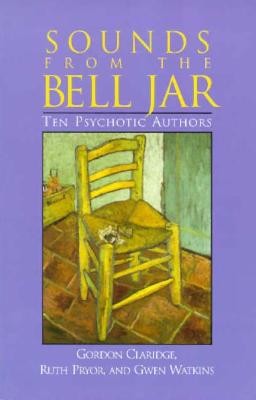
- We will send in 10–14 business days.
- Author: Gordon Claridge
- Publisher: Malor Books
- ISBN-10: 1883536154
- ISBN-13: 9781883536152
- Format: 14.1 x 21.4 x 1.8 cm, minkšti viršeliai
- Language: English
- SAVE -10% with code: EXTRA
Reviews
Description
This groundbreaking work is a unique collaboration between an Oxford psychologist and two literary critics. It was first published in 1990 and reprinted by Malor Books in 1998. The book explores the lives and works of ten authors, among them Virginia Woolf and Sylvia Plath, who embody both serious mental illness and great originality of thought. The book draws upon personal diaries, historical archives, clinical records and literary productions, and examines modes of thinking such as divergent thought, over-inclusiveness, and autism, which psychosis and creativity might have in common.
Using genetics, experimental abnormal and clinical psychology, personality research, descriptive psychiatry and literary analysis, the authors Gordon Claridge, Ruth Pryor and Gwen Watkins present the revolutionary idea that normality and psychosis are continuous with each other. Healthy varieties and styles of thought and perception substantially overlap with the inclination to psychotic breakdown and indeed might at times be identical.
It's not simple: neither a strict social interpretation nor a biological view of psychosis as a neurological disease can entirely explain the psychotic experience. As the authors eloquently put this, "The conjunction of the excellent and the awful is never found inany genuine neurological disease." Psychologists, psychiatrists, counselors, therapists and general readers will gain a deeper understanding of the relationship between madness and creativity from this book. By offering exceptionally rich discussion, the authors leave room for readers to view their own divergent thinking not as "crazy," but as potentially useful and creative.
- Author: Gordon Claridge
- Publisher: Malor Books
- ISBN-10: 1883536154
- ISBN-13: 9781883536152
- Format: 14.1 x 21.4 x 1.8 cm, minkšti viršeliai
- Language: English English
This groundbreaking work is a unique collaboration between an Oxford psychologist and two literary critics. It was first published in 1990 and reprinted by Malor Books in 1998. The book explores the lives and works of ten authors, among them Virginia Woolf and Sylvia Plath, who embody both serious mental illness and great originality of thought. The book draws upon personal diaries, historical archives, clinical records and literary productions, and examines modes of thinking such as divergent thought, over-inclusiveness, and autism, which psychosis and creativity might have in common.
Using genetics, experimental abnormal and clinical psychology, personality research, descriptive psychiatry and literary analysis, the authors Gordon Claridge, Ruth Pryor and Gwen Watkins present the revolutionary idea that normality and psychosis are continuous with each other. Healthy varieties and styles of thought and perception substantially overlap with the inclination to psychotic breakdown and indeed might at times be identical.
It's not simple: neither a strict social interpretation nor a biological view of psychosis as a neurological disease can entirely explain the psychotic experience. As the authors eloquently put this, "The conjunction of the excellent and the awful is never found inany genuine neurological disease." Psychologists, psychiatrists, counselors, therapists and general readers will gain a deeper understanding of the relationship between madness and creativity from this book. By offering exceptionally rich discussion, the authors leave room for readers to view their own divergent thinking not as "crazy," but as potentially useful and creative.


Reviews